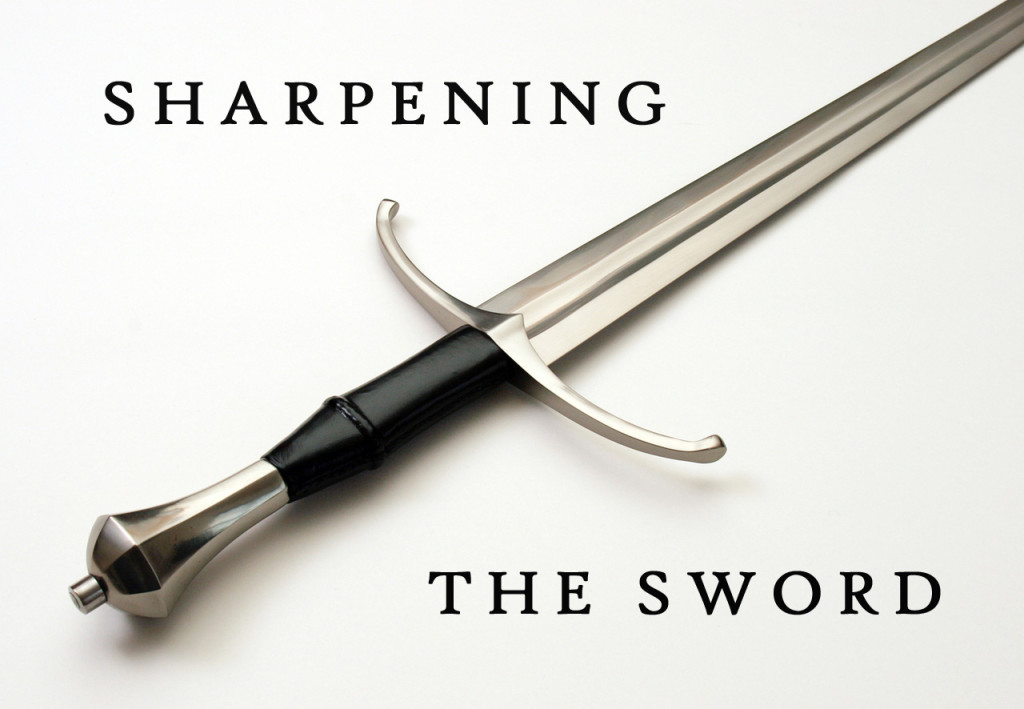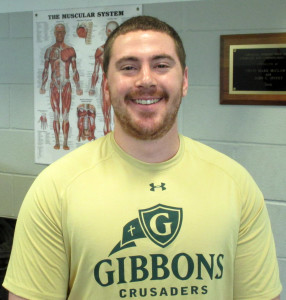Sharpening the Sword by Brendan Rabideau
A frequent problem that strength coaches run in to, especially young coaches such as myself, is what Coach McKeefery refers to as “paralysis by analysis”. Because of the incredible amount of information that is readily available it is easy to over analyze every little thing. This can often become overwhelming and frustrating when trying to develop your methodology, a program for a team, etc. In the chapter “Sharpening the Sword” Coach Mckeefery says the best way to overcome that paralysis is by actually seeing the practical application of how coaches apply the science when developing their programs.
The Manual
Coach McKeefery talks about how it is more difficult to obtain manuals because the majority of athletes stay on campus during their off-season. However, every coach still has to present their programs in some way to the athletes, whether it be powerpoint presentations, websites, etc. Reaching out to coaches for information about their programs and how they are developed can be a great way to increase your knowledge of different methods of training, new exercises, and how to manage the program as a whole. The information can also help you develop or even evolve your own methodology. An important point made by Coach McKeefery is to use and analyze your gathered information to develop your own “frame of reference”. This will be used to compare your future readings to and allow you to better understand similarities/differences when talking to coaches and peers.
Site Visits
Visiting different programs gives you the opportunity to talk to the coaches and ask questions about their methods and approaches to training. This can allow you to better understand their methodology and can ultimately help you develop and better your own methodology or program. Another benefit to site visits is you have the opportunity to leave a lasting impression. Networking is such an important part of becoming a great strength coach. Coach McKeefery talks about how his first visit was to K-State where he had met the Head Strength and Conditioning Coach Rod Cole. Coach Cole ended up playing a role in Coach McKeefery getting the job at South Florida.
Books
Coach Mckeefery discusses how there is more to being a good strength coach than writing and implementing programs. It is important to become a strong leader, not only for the athletes you are working with but for your family as well. “I quickly realized that I needed to work as hard on my family as I do on my profession.” (p.139) He also talks about how he was able to use some of the tactics that entrepreneurs used when running their business that proved to be valuable when he applied them to Strength and Conditioning. Books are a great resource to use to continue to grow as a strength coach.
Websites
The Internet can either be a very valuable tool or a very dangerous one. There is an abundance of information on the Internet but as we all know a large amount is not viable or in some cases not even true. It is key to make sure that the information you are gathering on the Internet is from a credible and reliable source. Coach McKeefery has created a list on his website of websites that he regularly uses. This list can be found on www.ronmckeefery.com/websites.
Research
Although research is a great tool to find scientific evidence that an exercise or method is credible, it isn’t always the easiest to understand. Coach McKeefery talks about how he surrounds himself with people who are better at interpreting the information. This is part of where networking, which I had mentioned earlier in this blog, is a crucial piece of the puzzle.
Peers
Building a network of strength and conditioning peers can be one of the most useful learning tools. It is very unlikely that a strength coach enters the field and is successful right away. There are going to be mistakes and “failures” along the way. Using peers as a learning tool is a two way street, you can learn from their successes and failures, and they can learn from yours.
Coach McKeefery highlighted the key contributors leading to “paralysis by analysis” and ways to overcome it. Often times strength and conditioning is thought to be exercises and drills but it is truly much more than that. Coaches have to become experts in Strength, Speed, Balance, Coordination and Nutrition. Additionally they need to master leadership and motivation to be successful. All of the information available on each of these topics quickly becomes overwhelming. That is why it is so critical to develop your “frame of reference” early and then leverage all your available resources such as your network developed from your site visits, books, websites and peers.
Brendan Rabidiau, BS (ECU, 16′) NASM-CPT
“The views, opinions, and judgments expressed in this message are solely those of the authors and peer reviewers. This content has been reviewed by a team of contributors but not approved by any other outside entity including the Roman Catholic Diocese of Raleigh.”


